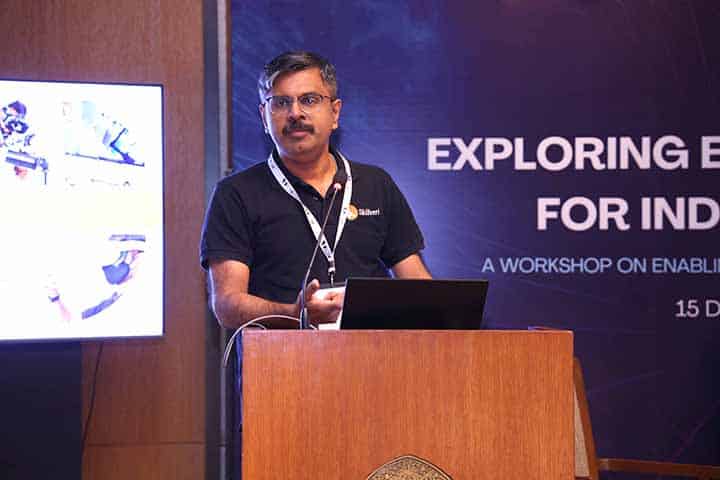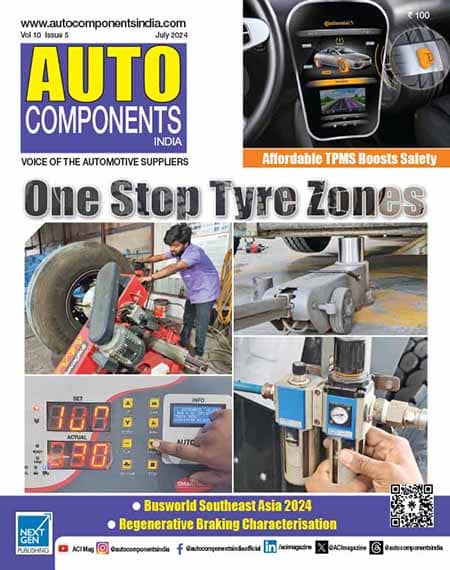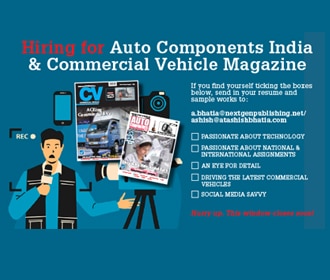Sabarinath Nair, CEO of Skillveri, spoke to Ashish Bhatia on emerging trends and interventions shaping up the labour market.
Q. How do you ensure equal opportunity and inclusivity for blue-collar jobs? How do you see the role of women evolving going forward and how have they adapted to the Skillveri platform?
A. Manufacturing industries and especially activities like welding have traditionally been male-dominated, but in recent times we have been witnessing a significant shift, with a lot of women becoming welders or painters. We are extremely happy that Skillveri has been helping to break this norm. Simulators offer a bias-free training environment and evaluation. We have had multiple instances where women started topping their batches after simulator-enabled training since there was no inherent scoring bias anymore. There have also been occasions where women who had so far been intimidated to handle spray-painting equipment felt interested once they saw the simulator training, and ended up with top scores after just one day of training. Women see the platform as a cleaner, safer, and bias-free way to learn and are very quick to adapt to it. Adopting tech-led training will help to bring more women into the fold and provide them more safer and inclusive learning environments.
Q. Is there a higher dignity of labour today concerning the automotive and allied industries? Is a career in automotive more aspirational than previously?
A. India, and especially states like Tamil Nadu, have become major automotive manufacturing hubs, which has caused a shift in the perception towards automobile industry jobs. With manufacturing processes also getting more automated and tech-driven, shopfloors are also increasingly seen as modern workplaces which has caused a shift in perception, making jobs in the sector aspirational for youth.
Q. How have recent government interventions helped? What else is desired to align with the automotive industry’s needs, especially for leading as the favourite in the plus one strategy as a manufacturing hub?
A. The Government has been very keen on strengthening the manufacturing sector in India. Steps to increase ease of doing business and PLI schemes incentivise the operational aspects of industries to establish or expand their operations in the country. On the other hand, one of the key things to India becoming a true manufacturing powerhouse will be the quality of the workforce available. To strengthen this the Government should focus on modernising its skilling initiatives with the right kind of technical capabilities to handle the requirements of the future. The Govt. bodies like MSDE, NSDC, and sector skill councils are all definitely working with great zeal towards building a robustly Skilled India, but there should also be an emphasis on choosing the most scalable technologies which offer the best potential, and rolling them out at scale in the shortest possible time.
Q. A word on the banes of advanced tech like AI you want the ecosystem to address on a war footing?
A. Any technology can be a double-edged tool, its ultimate potential lying in the hands of the user. With tech like AI, where the entry barrier for usage is low, it has all the more potential for both misuse and superficial use. The best way to reap its benefits would be to ensure its application for genuinely critical use cases and set regulatory standards and frameworks in place.
Q. Are you targeting any automotive hubs or micro-markets pan India that need to be supported with an adequate influx of skilled labour?
A. We are not focusing particularly on any single hub per se, but in general look at any industry or organisation which has a skill-critical process and can benefit from improved efficiencies and workforce development through our technology, which trains, measures and analyses the outcomes.
Q. Is there scope for higher industry participation under CSR to attain the larger vision on the lines?
A. Skillveri has had some very meaningful collaborations with CSR partners who have invested in skilling initiatives. We have seen the positive impact of CSR funding helping to upskill youth and improve their careers. CSR initiatives have helped many training centres upgrade their equipment and set up centres of excellence to provide world-class training to their students, which would have otherwise not been possible. With more industry participation, the model can be adopted at a larger scale and impact learners and communities across the country to reap the benefits in a much shorter period.
Q. How are you increasing your global penetration with Europe and the recent entry into Delaware and Birmingham based on the success of SaaS offerings?
A. Our SaaS or software licensing model, which we developed in the thick of COVID-19, has greatly accelerated our foray into international markets. We have established a presence in the USA and UK as well as partnering with re sellers across other countries to increase our footprint. The US also has a strong ecosystem of skill or career education programs at the high school level itself, and we are excited about our XR solutions powering young learners who are exploring their career choices early in life.













